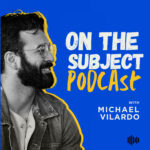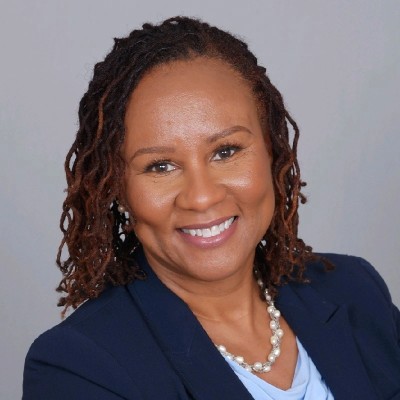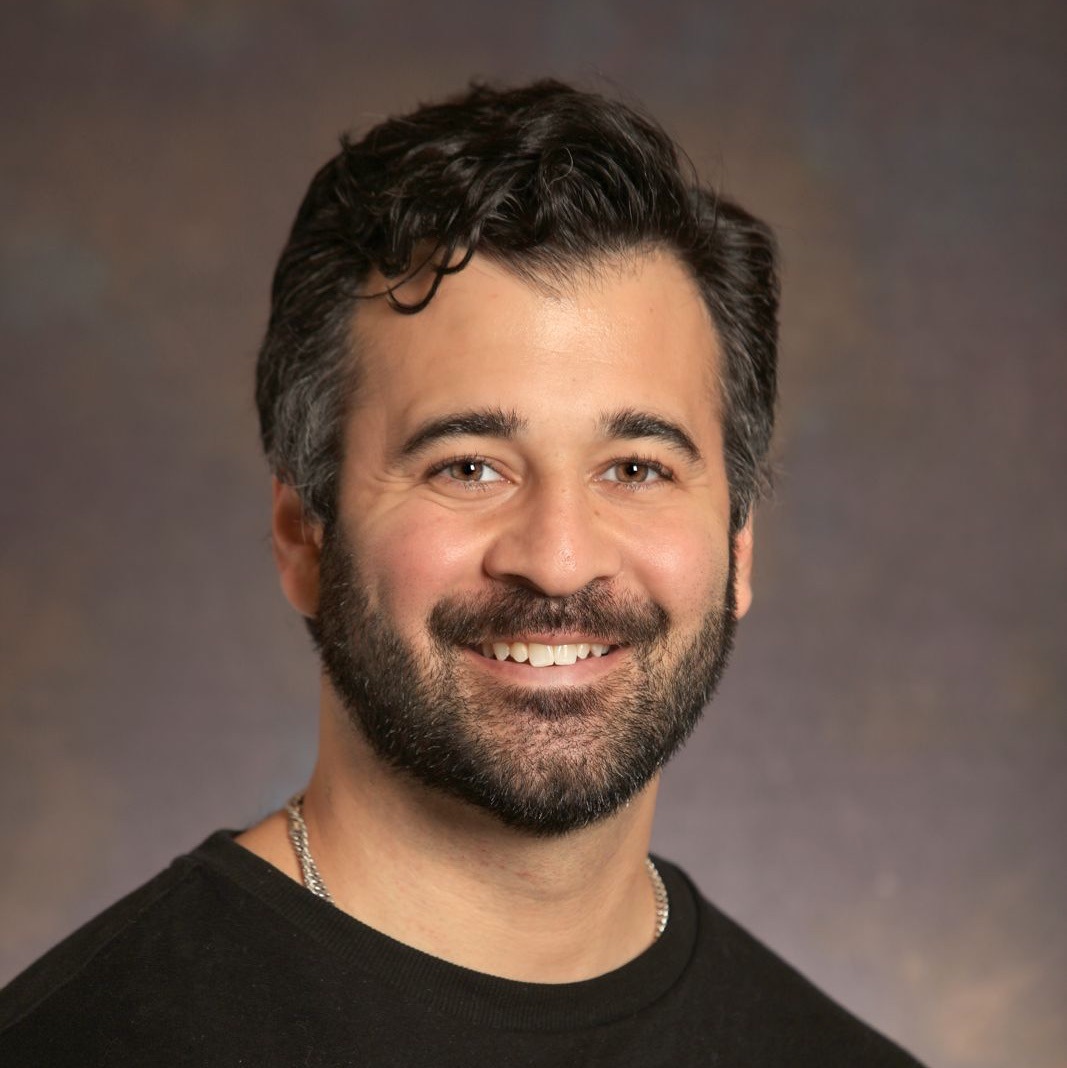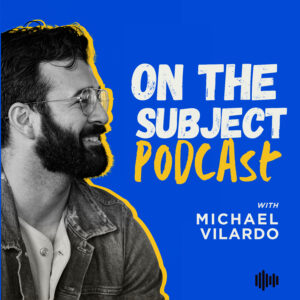#50 – Indian Prairie’s Dr. Nicole Howard on Empowering Educators and Rethinking Rigid Systems

On This Episode

Guest: Dr. Nicole Howard
Assistant Superintendent at Indian Prairie School District 204

Host: Michael Vilardo
Co-Founder and CEO of Subject.com
Episode Transcript
Michael Vilardo (00:12–00:43):
Welcome back to another episode of On the Subject. I’m your host, Michael Vilardo, co-founder and CEO at Subject, Subject.com, Subject.ai. You know where to find us here, and we have an incredibly special guest here today. Today we’re on our home turf in Socal, but we have a fellow Chicagoan.
Shout out Chicago, shout out Illinois, Midwest, Midwest vs. everybody.
Dr. Nicole Howard, assistant superintendent at Indian Prairie, one of the largest school districts in all the Midwest, who’s been piloting some incredibly innovative instruction. And we’re so excited to learn from you today. Thank you for joining us, thanks.
Dr. Nicole Howard (00:44–00:45):
Thank you for having me.
Michael Vilardo (00:45–01:02):
So one of the common themes with me is gratitude. I love to be able to express thanks. One, thank you for believing in Subject.
But this podcast is about education, not necessarily Subject. My question for you is, why education? Why did you choose to get into education? Why did you want to help kids?
Dr. Nicole Howard (01:02–02:15):
Wow, that’s a really good question.
It’s sort of a personal journey for me. My brother growing up, younger brother, had difficulty in school. Very smart kid, but just always in trouble. He would finish his work early, get in trouble, and now he’s getting pulled out of the classroom a lot. Long story short, he ended up in an alternative program, probably around fourth or fifth grade.
And it wasn’t a good situation for him. My family was very distraught about it. But then, going into junior high, when he returned to the public school, they just had a very different approach to education there, right? They were very student-focused. And this was back in probably the mid-80s.
And so there wasn’t a lot of conversation about student-focused education at that point, but this particular junior high was. And lots of project-based learning, lots of mentorship, and he really thrived in that environment. So just to see the difference in what we offer as far as educational experiences for our students, what a difference that makes and the success of those students always fascinated me from that point on right.
It’s like how we structure and how we design learning matters. And it matters for the trajectory of that person. And so growing up and being able to choose any career I wanted, and I actually chose a different one first…
Michael Vilardo (02:16–02:18):
Which one? Let’s give a shout out. What was it first?
Dr. Nicole Howard (02:18–02:51):
I was in technology coming straight out of college. I worked as like a junior systems analyst, but not very long because I didn’t really like it. And then I ended up becoming an educator after that and saying, hey, let me use my power for good. And I wanted to be that person to help design those experiences for kids.
So a passion of mine are students who just don’t thrive in the regular environment, right? Those students who feel like they’re kind of on the periphery of it a little bit, or on the edges. Going after those students and designing programs for them where they feel seen, where they feel heard, where they feel like, okay, I’m being taken care of here, so I’m going to put forth my best effort.
Michael Vilardo (02:51–03:09):
That’s beautiful and I really appreciate all you’ve done for your students. And you talk about being a math teacher by trade, you spent years teaching math, and now you’re in the leadership seat.
What do you think we could do to better empathize with our teachers in the classroom? How can we better support them? What have you been able to bring into the leadership role?
Dr. Nicole Howard (03:10–04:04):
Having empowering teachers to just sort of relax and enjoy their students, right? Enjoy that journey of learning. Bring your own personality into it. Of course, we have their mandates and the things you have to do, but what’s most important is building relationships with your students.
Because if you take the time to understand them and what they need, the rest comes. Then you know how to introduce that lesson to them, you know what to pull in, what to supplement your lessons with to really reach your learners. And so having that relationship, it makes everyone in the classroom feel better and more connected, and you enjoy your job more.
And so I think the biggest piece we try to get over to them that it is okay. It is okay to introduce that art into your teaching, as long as you’re covering the standards and making sure your students are proficient in their skills. But still, I think sometimes teachers need to hear that, and they just need to have that permission to do that.
Michael Vilardo (04:04–04:13):
I appreciate that and giving those individuals autonomy and confidence to be themselves is so powerful. And you talked about Indian Prairie, is it the third or fourth largest district?
Dr. Nicole Howard (04:13–04:13):
We’re the fourth.
Michael Vilardo (04:14–04:28):
Fourth largest in Illinois. Fourth largest in Illinois, which is one of the most popular states in the country. Very diverse district. What’s it like being able to impact so many different types of people? And is something that you’ve been able to learn being at Indian Prairie versus any previous districts?
Dr. Nicole Howard (04:29–05:49):
So Indian Prairie is probably one of the more diverse districts in that. We don’t have a majority of anything. We have several different sort of ethnicities within our district, and no one constitutes a majority. So for us, that’s a lot of fun. We get to cater to a lot of different sort of personalities and cultures within our district.
And so being able to use that, I guess, as sort of a… I wouldn’t call it a sounding board. But capitalizing, I guess, on those cultures to help all of our students thrive, right? Because there’s something all of our students bring to the table. Whether they are like, first or second generation immigrants, whether they’ve been here their entire lives, whether they came in from a different state. Taking that information and incorporating that into what we offer our students has been really good for us, right? Because we have lots of students from Asia in our district. So bringing in… So how did you learn math? What were the algorithms that looked like for you, right?
Even for some of our students who come from Mexico, who learn math a little differently. Taking that in and then having kids work with that within the classroom. Look at these different algorithms or approaches to just things with computations, right? What speaks to you, what do you like about that? And having kids sort of analyze that. Kind of be critical thinkers and make decisions for themselves. I think I want to use this approach instead of the one that we just saw in the book.
Michael Vilardo (05:50–06:01):
Absolutely, and we’re in 2025 right now. What would you like to see by 2035? What would you want education to look like in 2035?
We’re looking down the future 10 years from now.
Dr. Nicole Howard (06:01–07:13):
10 years from now, I think… having students think about the end and then what becomes really flexible is the way they get there. So we know that they want a certain career, maybe they don’t know what that career is. But at some point, they have an idea that I think I would like to do this and to get me there.
These are the courses that I feel are the most beneficial. These are the learning experiences that I want to have. So they’re not so tied to the general. Every student must take four years of English, every student must take algebra, geometry, algebra two.
In that order, you cannot deviate ever, or you can’t graduate. So, being able to have some flexibility within their learning space because I think the types of careers they’re going to have are very different from ours, and they’re going to need that flexibility. So if they need to take or want to take more science classes, or more robotics classes, there’s space in their schedule for that. If they want to take it in person with a teacher, we have that.
If they want to take it virtually, we have that, if they want to do a hybrid combination of that, with some in-person and some virtual stuff so they can kind of flex their own timing. We can have that, so really I think, becoming more flexible to the learning environment than we are right now. Our system tends to be very rigid, and it hasn’t changed much in the last couple 100 years.
Michael Vilardo (07:13–07:42):
We’re all about innovation, and you’re clearly a leader in the industry for that. And I love that you’ve been able to believe in technologies like Subject and others, and we really appreciate all that you do for your students.
And one piece we really love to culminate these conversations with is, if there’s a student or a teacher, and then they could be anonymous too, if you want to give them a shout out. We love to express gratitude towards someone who’s positively impacted you in the education space, whether it’s someone who mentored you or someone that you’ve mentored. But they’ve affected you positively, we’d love to hear and thank them into the camera.
Dr. Nicole Howard (07:42–07:42):
There are three people.
Michael Vilardo (07:42–07:45):
Three people. Okay, we’re giving three today, okay?
Dr. Nicole Howard (07:45–08:50):
So Mr. Reynolds, he was my high school math teacher who showed me math can be fun and relevant.
And we looked forward to coming to that class. I think it’s because of him I majored in mathematics in college. He made it something that was just very special to us, and we saw the real life connections to that. It was just phenomenal.
Dr. Bartling, one of my college professors in math, who made me stick with it when math was way harder than I thought it was gonna be. It felt like the bait and switch sometimes, but he was always there. And he said, No matter who you have as a teacher, you can always come to me for extra support if you need it.
And I feel like I was able to graduate and do well in that program because of him. And then I would say Dr. Barron, who was my leadership coach during my doctoral program, who also really took me under her wing. And would come to my building when I was a principal. And just helped me think through some of those tough situations that we were having. So that I could lead with integrity and with dignity and with confidence in front of our staff. So I want to thank all three of them. There are lots of other people as well. But if I have to say, the ones who really stood out to helping me become who I am today, they’re the ones.
Michael Vilardo (08:50–09:16):
And that’s the power of education. Teachers and coaches, we say, are the heroes in society, and you’ve been in those shoes for so long. But it’s great to be able to hear who made you who you are. And we’re so excited about the butterfly effect that education passes on, and we’re so inspired by you, Dr. Howard. And we want to make sure we thank you so much for your time.
Please like, subscribe YouTube, Spotify, try to get the followers up and listen to another incredible episode of On the subject. Thank you so much for your time today.
Dr. Nicole Howard (09:16–09:17):
Thank you.
Let’s talk about Subject
345 N Maple Dr. STE #130
Beverly Hills,
CA 90210, USA
Support
contact@subject.com
Academics
accreditation@subject.com
Customer Hub
Login
Support
Success Stories

